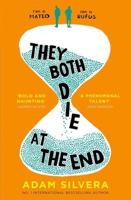Publisher's Synopsis
Excerpt from Ruby's Husband
But in the wide meadows skirting the city on the seaward side, where mists, smelling and tasting Of brine, were rolling in before the sluggish wind that would be a gale by morning; where the macadamized turnpike, the thoroughfare between the manufacturing town and its mightier commercial neighbor, was invaded by the tide ?ooding the ditches that divided the salt hay tracts, and served the double purpose Of fencing and drainage where one looking to the left saw a lurid horizon line, the fires Of a hundred furnaces that never went out, and to the right a dim mer but wider glare, that likewise never faded into darkness, and meant miles upon miles of gas-lit streets where, turning his eyes from the illumined distances, the traveller, or sojourner in the dreary waste, beheld nothing but the fast-glooming marshes, the few and feeble sparks Of light from the huts, erected, it was diffi cult to say for what purpose, and inhabited by beings who must assuredly have been wondrously limited in their choice Of abodes; heard nothing but the wash of the incoming tide, and the sigh Of the wind through the withered grass; in this low lying wilderness, where wet, and rawness, and November night meant such discomfort as the denizens Of the cities never dreamed Of, the twilight Of that Thanksgiving evening might have served as the climax Of all that was odious in weather and scene. The fog clung to and soaked and chilled the unhappy creature con dcmned by fate to encounter it, drew strength from the muscles and courage from the heart.
About the Publisher
Forgotten Books publishes hundreds of thousands of rare and classic books. Find more at www.forgottenbooks.com
This book is a reproduction of an important historical work. Forgotten Books uses state-of-the-art technology to digitally reconstruct the work, preserving the original format whilst repairing imperfections present in the aged copy. In rare cases, an imperfection in the original, such as a blemish or missing page, may be replicated in our edition. We do, however, repair the vast majority of imperfections successfully; any imperfections that remain are intentionally left to preserve the state of such historical works.








